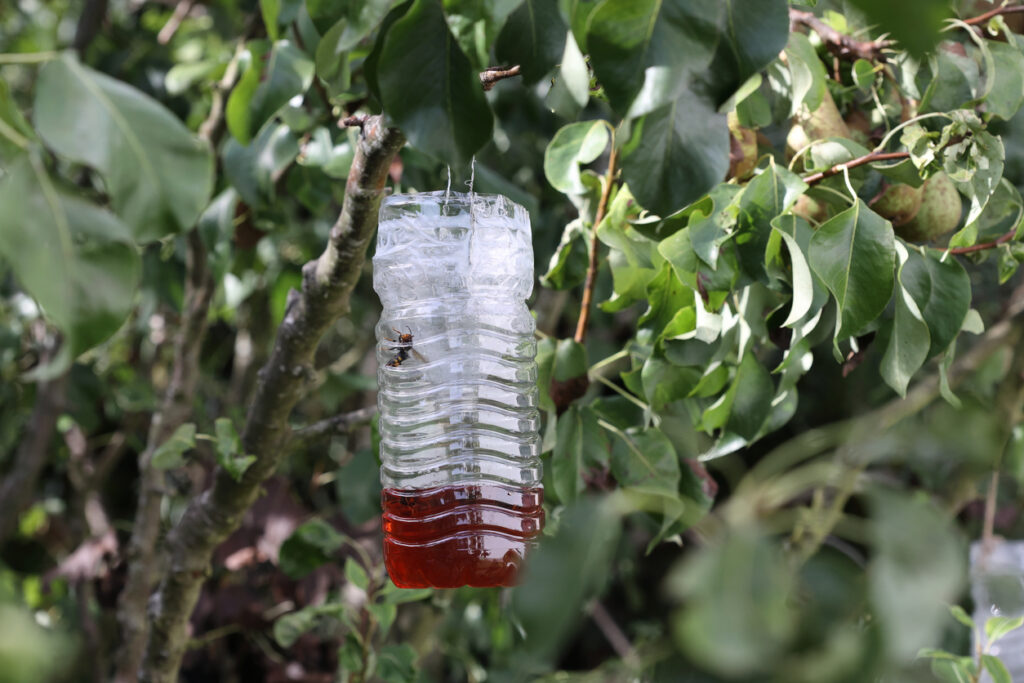Keep your outdoor space sting-free the natural way.

Nothing ruins a peaceful day outside quite like the sudden buzz of a wasp. You flinch, you freeze, and suddenly your afternoon BBQ turns into a frantic retreat. The good news? You don’t need chemical sprays to reclaim your space. These natural wasp repellents are safe, easy, and surprisingly effective. And one of them might already be sitting in your kitchen…
1. Peppermint Oil to the Rescue

Wasps aren’t fans of strong scents, and peppermint oil is at the top of their no-fly list. Just mix a few drops with water and spray it around doors, windows, and outdoor seating. This natural wasp repellent not only smells great to us, but also makes your home feel unwelcoming to buzzing intruders. Experts agree that strong essential oils confuse their scent trails, making it harder for them to settle in.
Sources: Hbnobulk
2. Clove, Geranium, and Lemongrass Blend

If you’re ready to level up your DIY game, mix clove, geranium, and lemongrass essential oils with water. This trio is known to disrupt wasps’ sensory systems, keeping them from nesting near your home. It’s a safe, natural alternative that’s been used for years in pest control. Just spray it around high-traffic outdoor areas and you’ll notice fewer uninvited guests hovering nearby.
Source: Sci Journals
3. Plant Wasp-Repelling Herbs

Your garden can be your first line of defense. Herbs like mint, basil, thyme, and citronella naturally repel wasps while attracting pollinators like bees and butterflies. Planting them around patios or windows discourages nesting and keeps your outdoor areas pleasant. Horticulturists have long recommended using plants with strong oils to ward off insects in a non-toxic, eco-friendly way.
Source: The Spruce
4. Hang a Fake Wasp Nest

Wasps are highly territorial, and seeing another nest can be enough to make them turn away. Hanging a decoy nest in your backyard tricks them into thinking the area’s already claimed. It’s a clever, chemical-free tactic used in many natural pest control circles, especially during spring when wasps are scouting for new real estate.
Source: Pest Solutions
5. Sweet Traps That Divert, Not Harm

Sometimes the best offense is a sweet distraction. Fill a jar with sugary water or fruit juice and place it far from your living spaces. Wasps are drawn to the scent and will explore the trap instead of your lunch. While this method doesn’t eliminate wasps entirely, it helps divert their attention, making your home feel safer and less swarmed.
6. Keep Food and Trash Covered

Open trash bins and uncovered food are a dinner bell for wasps. Secure lids, clean up spills, and avoid leaving sweet drinks exposed outdoors. Pest experts point out that wasps are scavengers, and removing their food sources can dramatically reduce their visits. It’s a simple lifestyle shift that makes your yard far less appealing to these persistent flyers.
7. Vinegar Spray for the Win

A vinegar and water mix sprayed around common wasp hotspots can be surprisingly effective. The strong scent makes the area smell unwelcoming to wasps, pushing them to relocate. This trick is loved by many who prefer non-toxic solutions for garden pests. It’s affordable, easy to mix, and safe for kids and pets which makes it a win-win for families.
Ready to enjoy your backyard in peace? Try one of these natural wasp repellents and let us know which one worked best for you. Got a secret weapon we didn’t mention? Share it in the comments and help others stay sting-free this season!


